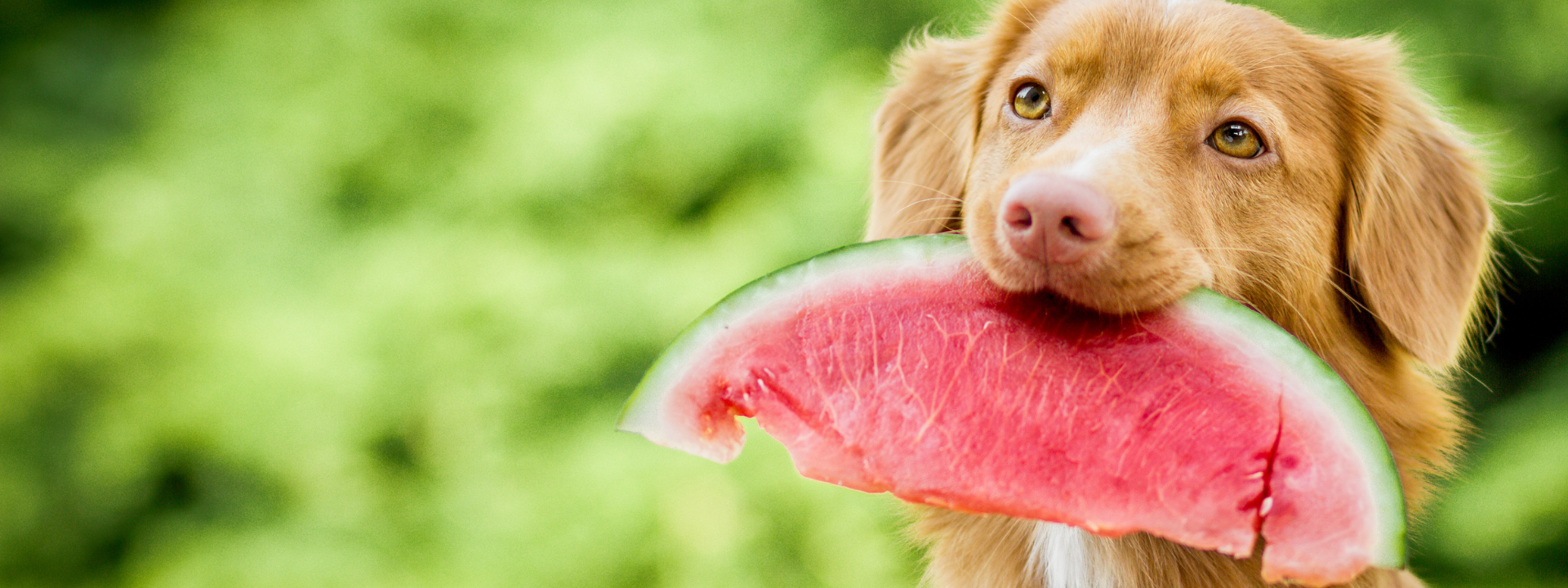Considering how acute a dog’s sense of smell is, imagine how enticing an aromatic bowl of fresh fruit must be to them. While fruit is high in fiber, an excellent source of vitamins and minerals, and contains antioxidants, if you feed your dog a high-quality dog food that’s appropriate for their age and size, you’re already giving them all the nutrients he needs. Of course, that doesn’t mean your dog won’t enjoy a special treat. When offered in small quantities and cut into bite-sized pieces, fruit is preferable to prepackaged pet snacks, but treats should never be more than 10% of a dog’s total daily calories.
Before introducing any fruit into your dog’s diet, it’s a good idea to check with your veterinarian first. Start by giving your dog a small taste, and then monitor them for any stomach problems or behavioral changes. If you detect anything out of the ordinary, stop giving them the fruit and call the vet. Fruit tends to have a high sugar content, so it’s especially important to talk with your vet first if your pup suffers from health conditions such as obesity or diabetes.
Keep in mind that as carnivores, canines have a different digestive system from ours and too much fruit can cause stomach upset and diarrhea. Even more concerning when it comes to dogs is that not all fruits are safe and some can be extremely dangerous. Eating even a small amount of the wrong fruit can lead…
What Fruits Can My Dog Eat?. Retrieved July 11, 2021 from https://embarkvet.com/resources/blog/what-fruits-can-my-dog-eat/












